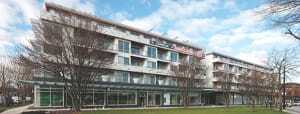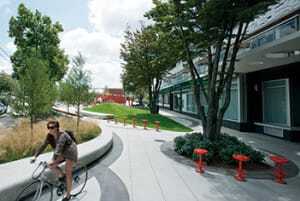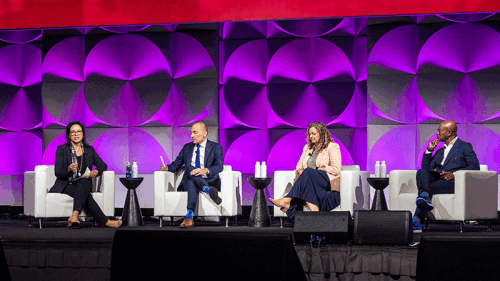Even if Vancouver were not considered one of the most beautiful, livable cities in the world—if it were not nestled between a pristine mountain range and shimmering coastal waterways—it might still have become one of the most popular places in the world for Chinese investors and immigrants.
Canadian immigration laws make it easier to move to Vancouver than to American cities. It is easier to get to the city from China because of frequent flights between the two countries. And many Chinese find Vancouver easier to adjust to than other cities because of the wealth of established Chinese culture, language, and cuisine in the area. The stunning beauty of the landscape is just one accessory in a package of attractions the city offers to Chinese people looking to invest or live outside Asia.
But housing is expensive in Vancouver. Despite the many benefits Vancouver and British Columbia have enjoyed from the influx of Chinese workers and capital in recent years, the cost of living—and its influence on Chinese immigration—may have reached a tipping point.
Vancouver is the most expensive city in North America in which to live, according to research from the Economist magazine. The 10th Annual Demographia International Housing Affordability Study ranked it the second-least-affordable city among 360 top markets, behind Hong Kong.
Prices for Vancouver homes, particularly in popular west-side neighborhoods, are increasingly out of sync with the size and quality of the available homes, says William McCarthy, a Vancouver real estate agent and consultant who has researched and written papers on the topic. The problem has become so widespread that he worries it could send the city on an unsustainable path that could threaten its livability, he says.
“Vancouver is an extremely expensive housing market, one which defies basic housing variables and analytics,” McCarthy says. “The wages in this region are stagnant and in many cases decreasing, while the cost of living—not just the cost of housing—continues to rise.”
The city’s run-up in prices prompted the mayor in 2012 to form a task force to consider ideas for bringing down prices or making it easier to afford living in Vancouver in general. Implementation of the task force’s recommendations is just beginning in an effort to stem what land use and housing experts suggest would otherwise be a continued rise in already inflated prices.
An Affordability Divide
Vancouver blogger Melissa Carr has made a name for herself in part by mocking city properties that are now selling at prices middle-income families will never be able to afford. At the end of last year, she collected her favorites into a list she called the “Top 10 Absurd Vancouver Properties of 2013.” Among her selections: a small, dilapidated two-story house listed for just under C$1 million (US$900,000), a number of one-level bungalows in need of updates for C$2 million (US$1.8 million), and a one-level bungalow with a patchy front yard listed for C$4 million (US$3.6 million).
Carr is far from alone in venting frustration at the cost of buying even a basic home in which to raise a family, particularly in the city’s west-side neighborhoods, and for good reason because Vancouver’s unaffordability appears to be worsening.
According to a price index relied on by the Real Estate Board of Greater Vancouver, in December 2013 the benchmark sales price for detached homes in the city was C$927,000 (US$833,000), up 2.5 percent from a year earlier; the price for attached units was C$456,100 (US$409,900), up 1.2 percent; and the price for apartments was C$367,800 (US$330,500), up 1.8 percent.
The Economist’s 2013 ranking lists Vancouver as the 21st-most-expensive housing market worldwide, up 16 spots from the year before.
The Demographia study for 2013 measured housing prices and incomes in 360 metropolitan areas of Australia, Canada, Hong Kong, Ireland, New Zealand, the United Kingdom, and the United States. Researchers found that the median home price in Vancouver was $621,300 (US$558,800), even though the city’s median household income was just $65,000 (US$58,500), making it the second-least-affordable city of the markets surveyed. Vancouver housing prices, Demographia researchers wrote, had gone up 80 percent since 2004 and become “grossly overvalued.”
Frank Schliewinsky, whose Gibsons, British Columbia, company Strategic Development Services tracks local condominium data, says the Vancouver’s condo market has dramatically bifurcated between homes for the rich and homes for everyone else.
“If you haven’t woken up to the fact that there’s housing for the 1 percent and then there’s housing for the rest of us, then you just haven’t woken up,” Schliewinsky recently wrote to subscribers of his research. “The Vancouver condo market is now firmly entrenched into the ‘us’ and ‘them’ markets. The ‘them’ market has managed to push Vancouver into most-unaffordable-city category and caused much hand wringing amongst civic and other public officials, but with little improvement in affordability.”
Part of the bifurcation of the housing market results from the growing premium that buyers are willing to pay to live in Vancouver itself or in nearby West Vancouver rather than the surrounding suburban area. This holds for single-family homes as well as condos. According to the Real Estate Board of Greater Vancouver, prices of single-family detached homes on the west side of Vancouver and in West Vancouver have gone up 58 percent and 51 percent, respectively, over the past five years. No other jurisdiction has seen increases higher than 40 percent during that period.
Asian Appeal
The degree to which the rising housing prices are attributable to sales to Chinese immigrants or investors is a matter of much debate in the city. Though Vancouver is popular among buyers from many parts of Canada and the world, a number of reasons exist why Chinese homebuyers find Vancouver more attractive than other locales, says Ken Rhee, chief executive of the Shanghai consulting firm Huhan Advisory.
First, a critical mass of Chinese people is already living there, making it easier for immigrants to assimilate, Rhee says. Ethnic Chinese account for about 30 percent of the population in the Vancouver area, making it easier for immigrants to adjust in terms of language, culture, customs, and cuisine. Also, immigration law makes it much easier for immigrants to enter Canada than the United States—whose border is less than 30 miles (50 km) to the south, with Seattle only 150 miles (240 km) away.
It is also easy to get back and forth from Vancouver to visit family in China. Vancouver International Airport carries flights to seven Chinese cities, with multiple airlines offering flights to places such as Beijing, Hong Kong, and Shanghai Pudong International Airport. In fact, some Chinese do not bother relocating their spouses and children across the Pacific Ocean to Canada.
The opposite is also true, thanks to the quality of life, good educational system, and opportunities for assimilation. “I personally know several mainland Chinese businessmen who primarily spend time in China while their family lives in Vancouver,” Rhee says.
Strong Economy
Vancouver’s economic indicators are strong. It had an unemployment rate of 6.7 percent at the start of 2014, a half point below Canada’s national rate of 7.2 percent, and the city is experiencing something of an office boom. Vancouver’s population is expected to grow at a stable 1.6 percent this year, and retail sales could grow 3.7 percent, according to ULI and PwC’s Emerging Trends in Real Estate 2014 report. Builders are expected to start work on 17,000 new houses this year and each of the next several years. “The combination of higher population and employment growth is expected to boost personal income growth, allowing for faster consumer spending growth,” the report notes.
Because of the stable economic outlook and nearly constant rise in home values, investors—Chinese or otherwise—looking to park cash often buy multiple downtown units in Vancouver and rent them out. Units downtown can go for C$850 to C$1,100 per square foot (US$764 to $989) and those in the suburbs for C$450 to C$700 per square foot (US$405 to $629). It is not a dynamic altogether specific to Vancouver: Asian buyers have been snapping up homes in California as investment properties or sometimes as homes while their children attend American colleges or universities.
About 75 percent of Vancouver’s Chinese population was born outside Canada as of 2006, according to Statistics Canada. About 30 percent of immigrants in Vancouver and 90 percent of investors moving to Canada are from mainland China, Schliewinsky says.
“Nonresident buyers are just parking their money in new high-rise condos and leaving them vacant. In effect, these Chinese buyers are treating housing like just another commodity to profit from,” he says of Vancouver condos.
Vancouver is not alone in being targeted by Chinese investors, immigrants, and professionals. California cities, with their strong universities and multicultural population, have increasingly been attracting Chinese investors and parents of college students. Late last year, CNBC reported that a new housing development in Irvine attracted some 20,000 interested buyers on opening weekend, the vast majority of them Asian and many of them from overseas.
Like Carr, some Vancouver residents complain that the preponderance of units purchased as investments or second homes has left thousands more such housing units vacant in Vancouver than in other places, damaging the social fabric of the city’s neighborhoods and communities.
“No city on earth’s residential real estate market has been more affected by a targeted and concentrated Asian investment, particularly that from China, than Vancouver,” William McCarthy, president of the Vancouver-area real estate services firm W.P.J. McCarthy and Company, wrote in a landmark 2011 article for the journal Real Estate Issues. McCarthy argues that though the interest foreigners have in Vancouver real estate may have prevented the city’s housing market from sustaining deeper losses in the recession, it has dramatically driven up prices since then.
In an interview, McCarthy said the affordability problem continues to worsen, threatening the city’s reputation as a well-planned, green, and livable city. “Vancouver is often quoted or cited as a prime example of smart growth and sustainable urbanism,” he said. “But if its own citizens can’t afford or pay down their housing debt, then how ‘livable and sustainable’ is this?”
Efforts to Boost Affordability
In 2012, Vancouver Mayor Gregor Robertson assembled a 14-member task force to address housing affordability.
“Vancouver must be a city where our children can afford to live and raise their families,” the mayor announced. “This is not a simple challenge, but it is one that we have to address—and I believe this task force has the ideas and expertise to provide new affordability solutions for Vancouver.”
Robertson appointed architect Alan Boniface, principal of the design firm DIALOG in Vancouver, as cochair of the task force. The report delivered to the city government by the task force a little over a year ago included a number of strategies for either adding housing supply or reducing costs for residents and families.
Among the strategies Boniface highlighted were changes that would allow higher density in neighborhoods served by transit, enticing developers to build in suburban areas that have not seen new home construction, and reducing parking requirements on some projects in order to lower the cost of construction. Construction of underground parking in Vancouver costs $35,000 to $50,000 per space, Boniface says. “That’s not helping affordability a lot,” he notes.
The city has already begun to act on some of the recommendations. In September, Robertson addressed one of them, appointing Mukhtar Latif, a property consultant from the United Kingdom, as the city’s chief housing officer, with responsibility for working with the public and private sectors to accomplish the task force’s priorities.
Rather than focusing on zoning and increasing supply, Schliewinsky says, the government might do well to change the tax code to make it easier for families and longtime residents to come out on top in bidding wars rather than investors. He suggested, for instance, a tax on apartments kept vacant for more than 12 months or, in order to cool housing speculation, a tax on units that are quickly flipped.
“A close look at the buyers prior to a public sales launch will show a high proportion of developer relatives and other investors who have no intention of ever occupying their unit but [who] just hope to make a quick buck by flipping before completion,” Schliewinsky says. “Cut out these speculators with a 150 percent tax if the unit is sold within 12 months after completion, and prices for actual homebuyers could be down by 10 percent or more.”
The biggest proposals from the task force have been tried in Vancouver before and failed. For instance, there was a backlash eight years ago when a previous mayoral administration attempted to allow more density and new housing types in some of the city’s more exclusive and pricey neighborhoods, Boniface says. “The reason it failed and the reason they’re having problems now is that these areas of opportunity for density are in established neighborhoods that feel like they should be single family forever,” he says.
The setbacks in addressing the problem are the reason McCarthy suggests that causing a real slowdown to the escalating costs could require a wholesale change in attitude.
“There is no one silver bullet to address affordability at this point, . . . and in this housing market you cannot divorce the politics . . . from their effect on affordability,” he says. “Perhaps a significant drop in prices and valuations, tied to a rise in interest rates and mortgage underwriting, will have an impact.”
Boniface agrees: the recommendations made by the task force are not likely to succeed without buy-in by both political leaders and residents. “It’s like any societal thing: I think at some level we’re all protecting our own skin in a subconscious way,” he says. “But I am cautiously optimistic.”
Jonathan O’Connell covers development and land use for the Washington Post and Capital Business.





